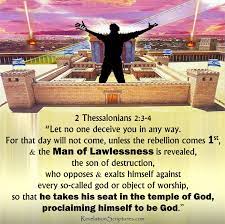
Entitled?
The daily news is out of this world.
What would happen if I got my just deserts?
![]()


![]()

It would seem so. But not really! If you are trusting Jesus Christ dynamically, one day at a time, you are safe and can enjoy watching from the Mezzanine! In fact every day should be for you an exciting adventure. Compromised Christians are not doing so well! Those who don't yet know God are often fearful and in need of love and acceptance into the household of faith. No one need to left behind. True truth never changes. If something was once true, it's still true. See: Chicken Little.
A 1969 episode of Star Trek, The Mark of Gideon featured a visit by the Starship Enterprise to a heavily overpopulated planet, desperately in need of some way of drastically reducing their population.
The true story of Gideon, found in the book of Judges, evidently inspired the screenwriters. Fifty years after this Star Trek episode, Globalists are working on earth's overpopulation. America is not the problem. The U.S. has only five percent of the world population. Population growth rate parameters are well-known. Worldometers has handy real time clocks.
Just as He did in the days of Noah, our Creator has announced that He will intervene soon to save us from ourselves. See The Coming Intervention of Jesus. God's management of things, whether behind the scenes or openly, always invokes maximum compassion and mercy. See also, The Management of the Universe.
Teaching of the New Testament concerning the removal of His people, the true Church by Jesus, is well documented though vehemently denied by many in the professing church. No matter, "God says what He means and means what He says." See: The Rapture Resources.
One of the biggest temptations in the world is the love of money. See The Money Papers.

“For yet a little while,
And He who is coming will come and will not tarry.
Now the just shall live by faith;
But if anyone draws back,
My soul has no pleasure in him.”
(Hebrews 10:38-39)

![]()
An editorial news clip last week reminded me of something I had not seen clearly for years. Our nation was built by hard working, mostly ordinary, people. They believed there was no such thing as a free lunch, that "idle hands were the devil's worship," and "the world does not owe you a free living."
I became a bit depressed at how lost most people are today--ignorant of God and subject to many delusions about ourselves and the world we have been born into.
"After having saved the country, ain't they entitled to help themselves to just as much of it as they want?-- Mark Twain.
"We are also the so-called entitled generation, … told by helicopter parents and the media, from the moment we exited the womb, that we could be "whatever we wanted"--Jessica Bennett
"We live in a world where everyone thinks they do the right thing, so they are entitled to do the wrong thing. So ends can justify the means. --Alex Gibney
"The 1935 Social Security Act established 65 as the age of eligibility for payouts. But welfare state politics quickly becomes a bidding war, enriching the menu of benefits, so in 1956 Congress entitled women to collect benefits at 62, extending the entitlement to men in 1961." ---George Will
"A sense of entitlement is a cancerous thought process that is void of gratitude and can be deadly to our relationships." --Steve Maraboli
"Once an entitlement program has been created with millions of beneficiaries, it becomes almost impossible to repeal." --Pat Buchanan

The Grass is Always Greener over the Septic Tank

![]()

| "Then one of the scribes came, and having heard them reasoning together, perceiving that He had answered them well, asked Him, “Which is the first commandment of all?” Jesus answered him, “The first of all the commandments is: ‘Hear, O Israel, the Lord our God, the Lord is one. And you shall love the Lord your God with all your heart, with all your soul, with all your mind, and with all your strength.’ This is the first commandment. And the second, like it, is this: ‘You shall love your neighbor as yourself.’ There is no other commandment greater than these.”
So the scribe said to Him, “Well said, Teacher. You have spoken the truth, for there is one God, and there is no other but He. And to love Him with all the heart, with all the understanding, with all the soul, and with all the strength, and to love one’s neighbor as oneself, is more than all the whole burnt offerings and sacrifices.” Now when Jesus saw that he answered wisely, He said to him, “You are not far from the kingdom of God.” But after that no one dared question Him. (Mark 12:28-34) |

See that you do not refuse him who is speaking.
For if they did not escape when they refused him who warned them on earth,
much less shall we escape if we reject him who warns from heaven.
His voice then shook the earth; but now he has promised,
"Yet once more I will shake not only the earth but also the heaven."
This phrase, "Yet once more," indicates the removal of what is shaken,
as of what has been made, in order that what cannot be shaken may remain.
Therefore let us be grateful for receiving a kingdom that cannot be shaken,
and thus let us offer to God acceptable worship, with reverence and awe;
for our God is a consuming fire. (Hebrews 12:25-29 RSV)

![]()
Psalm 50A Psalm of Asaph.

But to the wicked God says: ‘What right have you to recite my statutes, or take my covenant on your lips? For you hate discipline, and you cast my words behind you. You make friends with a thief when you see one, and you keep company with adulterers. ‘You give your mouth free rein for evil, and your tongue frames deceit. You sit and speak against your kin; you slander your own mother’s child. These things you have done and I have been silent; you thought that I was one just like yourself. But now I rebuke you, and lay the charge before you. ‘Mark this, then, you who forget God, or I will tear you apart, and there will be no one to deliver. Those who bring thanksgiving as their sacrifice honour me; to those who go the right way I will show the salvation of God.’
More on Psalm 50 On Selling Cattle
|
"What determines the future is what God has done in the past
|
![]()
from Ray Stedman
We are now coming to the last word in this letter of Paul to the Philippians. We will be looking at chapter four to the end of the letter. We invite you to follow with us in your own Bibles as we read. This last note of the letter as might be expected is a very personal one as the apostle is writing to his friends far across the sea from him, and yet it echoes very strongly the theme of the whole letter, which is the word "Rejoice".
It is amazing that when the apostle was a prisoner of the Roman emperor, chained to a guard day and night, restricted from going about the work he loved, preaching and reaching out to the regions beyond, he nevertheless writes a letter that is the most rejoicing, the most triumphant of all his letters. Eleven times in this letter the apostle uses the word rejoice, and that marks the theme of this letter.
The reason he can rejoice in such distressing circumstances is that he has discovered the secret of rejoicing in all circumstances. That is the discovery of a wholly adequate God. This is the secret of the apostle Paul, and it is the secret of every victorious Christian. Every one who has learned to live above his circumstances has learned to reckon upon the fact that the scriptures state from cover to cover that the Lord Jesus Christ is the indwelling life within us who is wholly adequate and competent to meet every possibility that can come our way. When we start believing that we will find life begins to change, and the whole of our attitude and expression begins to alter.
Now this letter closes on a very practical note. I think it is one many of us are wrestling with. It answers the questions "how to be satisfied in any circumstance", and "how to be supplied in every need". If you have ever wrestled with these two problems of human life there will be much for our hearts this morning.
Let's begin with the first question, how to be satisfied in any circumstance.
v. 10 "I rejoice in the Lord greatly that now at length you have revived your concern for me; you were indeed concerned for me, but you had no opportunity. Not that I complain of want; for I have learned, in whatever state I am, to be content. I know how to be abased, and I know how to abound; in any and all circumstances I have learned the secret of facing plenty and hunger, abundance and want. I can do all things in him who strengthens me."
There are some who mistakenly think that the apostle supported himself entirely in his ministry by making tents. We do know that on occasion he did so, but not always. It was only when some special occasion required it that he did so. He writes to the Corinthians and says he had to be very careful not to be a burden to them, because he especially wanted to make it clear to them that the gospel is absolutely free, for they had a problem with this. But on many occasions he received help from the other churches which he had been used of the Lord to form. Here is one instance of just such a church that had helped him along the way, the church at Philippi. And he rejoices in the renewal of their missionary pledge to him, saying he rejoices greatly in their revived concern for him.
Something had prevented them from keeping up their promise or intentions. The apostle acknowledges that the mail service is not very good-"you had no opportunity." Of course they had no formal mail service such as we have, and communication was dependent upon travelers who might be going to that portion of the world to which they wanted to send something. For some time now there had been no one coming from Philippi. It was out in a remote post of the Roman Empire, off the beaten tracks, and it was therefore difficult to get word to him. But he assures them there is no complaint from him about this, and he takes this opportunity to declare his own experience of learning how to be content.
This is a great problem in our day isn't it? If there ever was an age when men and women wrestled more with the problem of discontent, I don't know when it would be. This is a day of pressure to keep up with the Joneses and stay in style, and constant pressure to get more things and obtain a higher standard of living, a wider display of some of the luxuries of life. The apostle declares that he has learned how to face these pressures, and in any circumstance has learned to be genuinely content.
Verse 11, by the way, has always been a great comfort to me, especially when I moved from the beautiful "Territory of Hawaii" (as it was then) to the State of Texas. I sometimes longed there in the prairie heat of Texas for those cool beaches of Hawaii. I looked back on them with great longing until one day I read in this verse, "I have learned in whatever State I am to be content", and realized it was even possible to be content in the State of Texas. Of course the state Paul is speaking of here is the condition in life in which he finds himself.
There are three things about his statement I would like especially to look at this morning. The first is something it is necessary to learn. We are not born content. Our natural spirit is to strive to get more. The outlook from our youth is to keep looking for something new to titillate our senses and satisfy, at least temporarily, our desires. We are always striving for something. I think what the apostle is saying to us here is that he had learned not only to experience contentment, but what is real contentment. The process of learning this is to learn a new definition of contentment.
I don't know how you would define contentment if you had the opportunity, but I suspect that most of us would come up with some variation of the idea that contentment is having everything you want. I don't think that is the true definition. You perhaps remember the story of the Quaker who put a sign on his house one day that said, "I will give this house to any man who can prove to me that he is content." After a bit someone came knocking at the door and said he saw the sign out front and wanted to claim the house. He said he was perfectly content. The Quaker asked what he meant. He said, "I have everything I want, all the money I need, everything in life that could satisfy. I am perfectly content."
The Quaker said, "Friend, if thee is so content what does thee want with my house?" That's a revelation of how subtly these desires for more can creep into our thinking.
 Contentment is not having all that you want. True contentment is wanting only what you have. This is what Paul had learned. He had learned that God had created man to love people and use things. But somewhere along the course of life we have reversed that truth and learned to use people and love things. That's our problem. But through the years the apostle Paul had been taught of the Spirit of God that circumstances are illusive. They do not minister to the deep needs of the heart, whether having want or having abundance. The major value of life is the ability to love people and use things. This was the focus he had learned at last, to face life as it really is.
Contentment is not having all that you want. True contentment is wanting only what you have. This is what Paul had learned. He had learned that God had created man to love people and use things. But somewhere along the course of life we have reversed that truth and learned to use people and love things. That's our problem. But through the years the apostle Paul had been taught of the Spirit of God that circumstances are illusive. They do not minister to the deep needs of the heart, whether having want or having abundance. The major value of life is the ability to love people and use things. This was the focus he had learned at last, to face life as it really is.
The second thing to notice is that he states clearly that poverty and wealth are equally regarded as trials. This is not the usual perspective, but again something that must be learned. We are naturally inclined to view poverty as a severe trial, but abundance as a great blessing, and continually seeking after a state in which we have everything we want. This indicates that we really don't know how to define contentment. It is not having all you want, but wanting what you have. We are continually beset by the philosophy of the age as in the Horatio Alger story, the young man who rises from the depths of poverty and through his own efforts comes at last to an abundance, a wealthy tycoon. This is the American way. Paul says that's not the case. Both poverty and wealth are demanding extremes. Both are grievous weights to the human spirit. Both tend to twist, distort and degrade the personality. Both are trials of severe intensity and can be destructive to human life.
Paul had learned to face them both, so the first thing to note here is that he learned how to have victory over both of these impostors: verse 13, "I can do all things through him who strengthens me." You will recognize this is the theme that runs through nearly every verse of this letter, a continual harking back of the apostle to that great discovery in his life when he learned that he had nothing in himself. All his background, ambition and abilities, and all that he counted as gain was really useless as far as what he could do for the cause of Christ. He learned he had nothing, was nothing, could do nothing-that it was God expressing his life that was the secret of human living. Once again he writes of a life fully adequate to meet any demand placed upon it, because it was the out living of an indwelling life. It was practicing that confidence that whatever Jesus Christ once was in the days of his flesh meeting every situation, he still is, and he is available continually to us. This is the secret the apostle sets forth here.
I think specific application is needed here to this problem of meeting hunger or abundance equally well. I think what is meant here is that every circumstance the apostle faced, whether hardship or luxury, was not evaluated by his own personal reaction to it, but it was accepted as the Lord's choice for him in order for the Lord to display his overwhelming ability, no matter the circumstance. In other words, Paul didn't judge situations by how he felt about them. He recognized that every one was a choice of God for him. The thing that would delight the apostle's heart was not whether it would minister to his own particular needs or desires, as we so often do, but whether it would fulfill that which God had in mind for him. That's what made the difference.
Why is it that we complain when we are put under serious pressure, and we get so distressed? What is it that keeps us hungering after abundance, luxury, ease and comfort? Isn't it because quite unthinkingly we are really expecting God to arrange everything in the universe to suit our personal desires? Therefore we get upset when things don't quite work out the way we would like them to.
All this simply reveals the fact we have forgotten "we are not our own". We were "bought with a price", and God has the right to use us for his own satisfaction. It's what he wants that counts, not what we want, and when we begin to recognize that and take that place we see that the desire of God, because he is love, is always to give himself to meet the needs of someone else. That makes places of hardship, trial, suffering and difficulties the same as the other times of blessing, joy and gladness. This is what the apostle had discovered.
Most of us often say, "I can't" because basically we just don't want to do something. We've forgotten we are not our own, but we are bought with a price, and it isn't ours any longer to direct our lives. It's up to God, and the simple acceptance of that fact revolutionizes our attitude and releases within us the triumphant life of Jesus Christ that enables us to know how to be abased and how to abound. The apostle says he knows how to face lack, and how to face plenty. In either I am simply aware God puts me where he wants me, and whatever he wants is what I want. When we struggle with that it's a revelation we are not yet willing to take that step. That may be rather blunt, but it's the truth, isn't it? Paul has learned to say "I can--I can do all things through Christ who strengthens me--because he has learned that everything that comes to him is permitted by God, in order that people may see the wonder of God who loves people and uses things.
I sometimes grow weary of hearing the continual cry, "I can't" from the people of God. What a monotonous refrain it is. I can't stand so-and-so. I can't live with my mother-in-law. I can't teach a Sunday School class. What a glorious thing to find someone who can say "I can"! I remember what a delight came to my spirit when a few years ago we put out what we called an "enlistment blank" to the congregation. Some of you will remember it. We listed all types of activities and ministries within the church and outside the church. We asked people to check their interests, and various people helpfully checked certain activities that they enjoyed or felt they could do, and this was a great help to us. But one man simply wrote across it, "I can do all things through Christ who strengthens me." He meant it too!
When I was in the Lincoln Avenue Presbyterian Church in Pasadena, an adult class there had a wonderful Christian man as its leader who organized within the class what he called the NSN Club. The letters stood for "never say no," and anyone who joined the NSN Club would simply always say yes to what they were asked to do. I wish we had clubs like that throughout the church.
I can do all things through Christ who strengthens me-that's the secret of being satisfied in every circumstance. If you are unwilling to learn the secret, you certainly will not be enjoying the contentment.
Now verse 14 introduces the other problem, how to be supplied with every need. The apostle says, vv. 14-20:
"Yet it was kind of you to share my trouble. And you Philippians yourselves know that in the beginning of the gospel, when I left Macedonia, no church entered into partnership with me in giving and receiving except you only; for even in Thessalonica you sent me help once and again. Not that I seek the gift; but I seek the fruit which increases to your credit. I have received full payment, and more; I am filled, having received from Epaphroditus the gifts you sent, a fragrant offering, a sacrifice acceptable and pleasing to God. And my God will supply every need of yours according to his riches in glory in Christ Jesus. To our God and Father be glory for ever and ever. Amen."
Here we have an expression of warm and fragrant thanks for the gifts these people had sent to him by the hand of Epaphroditus, yet he is quick to point out that he is far more interested in what their giving does for them than what it does for him. You remember the Lord Jesus said, "It is more blessed to give than to receive." This is what the apostle is saying, "not that I seek the gift; but I seek the fruit which increases to your credit." These are really financial terms. The word "fruit" here is a common word in the business world of that day for "interest". What Paul is saying is "I don't desire the capital. I only want the interest, and it is continually increasing to your account." That is, as you give to me there is a blessing you receive which is continually building up for your own enjoyment.
That's what he is after; not that he needs the gift. He wants them to be blessed in the giving, and that is why he so gladly receives these gifts from them.
Then he writes what is nothing more nor less than a receipt, in verse 18: "I have received full payment, and more." Now don't be misled. This is not necessary in order for the Internal Revenue Department so that it might be deducted from the income tax. This is the reason we give receipts today. But this receipt was given in order that they may know the gift has gone farther than Rome. It has reached to heaven as well, where it is presented as a fragrant incense delighting the heart of God. God sees this gift given so freely to the apostle out of their poverty. In another epistle he speaks of the deep poverty out of which they gave. It becomes a delightful fragrance to God's heart, pleased with the evidence of the work of the Holy Spirit in their lives.
I think each offering in the church, and each gift of any Christian to any specific need, ought to be something that is given in such a willing, gracious, generous expression of the love and thanksgiving of the heart that God is just simply delighted as he knows it is the spirit of love within that prompts this kind of giving.
Remember we are told the Lord Jesus "sat down opposite the treasury, and watched the multitude putting money into the treasury." There is a sense in which he always does that. He watches as we drop our check into the offering plate or coin into the box or mail it off. And he knows the intent of our hearts in this, and that is why the apostle so strongly says, "God loves a cheerful giver", a hilarious giver, one who gladly pours it out. This delights His heart, because this is the way He gives. When we give this way, the result will be the fulfillment of the promise of verse 19: "And my God will supply every need of yours according to his riches in glory in Christ Jesus."
Don't divorce that from its context. That is a promise for givers. Not for non-givers. It's what God does in return for the expression of your gift. It isn't a blank check for the whole human race. Unfortunately, we often subtract it from its context and take it as a blank check we can cash any time we are in need. It has sometimes been taken to apply to everyone everywhere. It is not that. Half the world goes to bed hungry every night, as you know, and millions live in desperate need in both body and spirit. This is not a promise that God is going to meet all the time every need of every human life. He cannot, and permits the world to express its own innate tendencies, hungers and desires.
This is a promise in exact accord with our Lord Jesus' own words in the Sermon on the Mount. Remember what he said: "Give and it will be given to you." This is a promise for givers. You give, and God will give back to you. Of course it's understood that we have all received freely from him first, and out of that sense of having received from him, let us give. The Lord says, "Give and it will be given to you; good measure, pressed down, shaken together, running over, will be put into your lap. For the measure you give will be the measure you get back."
That is exactly what Paul is saying here to his dear Philippian friends. He says you have given to me out of your poverty, out of your lack, at cost to yourselves. I am grateful for that, not because of the gift which in itself was a delightful fragrance in the nostrils of God, but it means that my God will also give back to you and supply every need of yours, abundantly, overpoweringly, overwhelmingly out of the riches in Christ Jesus. It is necessary we take that in its proper context.
First of all, notice the source of supply: "my God". Not just God will supply, but God known in personal experience. Not some remote power running the earth, giving to the just and unjust alike, but a personal Father. This is a family matter. This is a promise for the children of God, those who belong to him.
Then notice the limits of supply: every need, all your need. It has often been pointed out, and quite properly, that it doesn't say, "all your wants". Our wants are sometimes far beyond our needs. I remember Dr. Ironside used to say he delighted to walk through Woolworth's dime stores because it was always such a comfort to him to see so many things he could get along without. There are so many wants in our lives, and really so relatively few needs. God has promised to supply your needs, and you must leave the interpretation of what is a need up to him. Sometimes it's hard for us to see the difference between a want and a need, or even a whim. The Lord will supply the need; therefore we finally have the axiom we all must face, that whatever we don't obtain we don't require, for if he promises unfailingly to supply our needs we will have it.
Someone has said that at the beginning of this century the average American wanted 72 things, 18 of which he regarded as necessary. But by the mid-century mark, 1950, the list of American wants had grown to 496 things, 96 of which he regarded as absolute necessities. That shows something of the pressure we are under to have our wants regarded as needs. But God knows us, and your actual need may be to learn how few things you really need, and he will supply that need. He promises to supply all of them, and that is not only physical but in every realm of our lives. Our need for companionship. Our need for purity. Our need for a challenge, to give us something to follow, some work to do. Or even that nameless something we feel but we never can express or explain. He can supply that need, and he will in Christ. Remember what Jesus said, "If any man thirst, let him come unto Me and drink." He didn't specify the thirst. He didn't say, if any man thirst for alcohol, or water, fame, food or power--anything, just if you thirst, whatever it is. He said, "If any one thirst, let him come to me and drink. Out of his heart shall flow rivers of living water". He satisfies that clamant desire of the human spirit, making us satisfied in Christ.
 Notice finally the method of supply. It's according to his riches in glory in Christ Jesus. I remember this as the first message I preached in Peninsula Bible Fellowship, in the Community Center, when I came as a young, green graduate from seminary. I remember I developed the text by pointing out there are three kinds of riches mentioned in the Word of God.
Notice finally the method of supply. It's according to his riches in glory in Christ Jesus. I remember this as the first message I preached in Peninsula Bible Fellowship, in the Community Center, when I came as a young, green graduate from seminary. I remember I developed the text by pointing out there are three kinds of riches mentioned in the Word of God.
There are the riches of his goodness which are available to all men everywhere. He makes the sun shine and the rain to fall upon the just and the unjust. And the riches of his goodness are expressed in nature and available to everyone, good or bad or indifferent. God gives it to us anyhow. Then there are the riches of his grace which is available only to sinners who admit their need, who realize they are poor in spirit and have nothing in themselves. God's grace takes over and forgives and cleanses and gives them purity and all they need. Then there is "the riches of his glory" in Christ Jesus. This is available for saints, to those who know him. All that he has in terms of the glory and fullness of his deity is available to any believer in Jesus Christ. I love that. It means the weakest saint holds in his hands all that the greatest saint ever had. He has Christ, and in having Christ he has everything! No one is shut out.
Specifically, it means at least two things. It means that when we ask for something God will give us better than we asked. The "riches of his glory" is beyond our ability to comprehend. Therefore we can never ask for more than he can give. That's why he promises us in Ephesians: "Now in him who by the power at work within us is able to do far more abundantly than all that we ask or think." When we come to God for a genuine need and ask his supply, he inevitably does more than we ask, for our limits are not his.
Notice he says he gives "according to" his riches in glory, rather than " out of". If it were just out of it would be less of a promise, but according to his riches is another thing. I remember reading some years ago that Henry Ford I is a very wealthy man, with billions of dollars. In fact there was one time an article in the paper about how he had lost eleven million dollars and didn't know where it was, and that he keeps a million dollars in change around that he can use for purchasing small items. Suppose you and I went to him and asked for a donation for some worthy cause, and after we presented the need he sat down, took his checkbook, and with bated breath we watched him write out a check for ten dollars. That would be giving out of his riches. But supposing he gave according to his riches. We might say, Mr. Ford, will you kindly take back this check and give according to your riches? What a difference that would be. Now God promises that he will meet our need, and this is no joke, not a mere bandying of words: according to his riches in glory in Christ Jesus. That means he will give much better than we ask.
I remember years ago as a young man walking up and down the sidewalk at Lincoln Park, outside the Moody Church in Chicago. I looked up at that great church, and already I had felt the call of God to work to enter the ministry, and it seemed to me that church was the acme of all that was desirable in terms of ministry, the greatest pulpit in evangelicalism. And I remember as I walked asking God that if he be pleased he would someday let me speak in that great church, or even be pastor of it. I forgot that prayer soon after, but twenty-four years later the Lord answered it, and as some of you know I had the privilege this June of preaching in the Moody Church.
As I stood in the pulpit I remembered that prayer walking up and down the streets at Lincoln Park, in fact the evening before I walked the same path thinking about that experience, remembering how I had coveted speaking in that great pulpit. Then I saw something of the life of the church, and how it was struggling to maintain its very existence in the city of Chicago, how desperate the problems it faced, how difficult the circumstances in which it was involved, how exceedingly difficult would be the task of the man who takes that pulpit at this time. I came back to my own rich and wide challenge of ministry, with a heart of thanksgiving to God that he answers prayer, but he gives far more than we ask, quite content with what God has given and feeling sympathy for the man who pastors Moody Church in these days.
Then this also means when God gives according to his riches in glory he will often give an answer quite different from what we have asked. Because it is not according to what we have asked, but according to his riches in glory. This is his intent. You remember Paul asked to be delivered from the "thorn in the flesh", that grievous physical affliction that kept nagging at him, causing him physical trouble. He asked three times to be delivered from it. The answer was not the removal of the thorn, but the strengthening of the thorn-bearer, because that was in line with God's riches in glory in Christ Jesus.
Many have said to me, you know my greatest disappointment became, by God's grace, the beginning of the greatest blessing in my life. God didn't answer my prayer like I asked him to, but the answer he gave, though different from what I asked, was I now can see in perfect accord with his riches in glory by Christ Jesus--what he desired to give me all along. So we need to face this verse with its great promise exactly as it is. God often removes the merely material and physical in order that we may lift our eyes to the higher spiritual blessing. This is what he promises us.
These are the superlatives that come to those who are willing to take as God gives. There is, as we have seen in this letter, first of all peace that passes understanding. A lady said to me just this week, I don't understand it but in these circumstances where I ought to be so troubled and so distressed I have such a quiet peace I wonder if people will think I am uncaring about it. Peace that passes understanding, love surpassing knowledge, joy unspeakable and full of glory--unsearchable riches in Christ. More abundant life, unending grace--these are the promises. Listen to this catalog of the riches in Christ that are available to you now, not in heaven but now! We read, "in him are hidden all the treasures of wisdom and knowledge", and all the promises are in him "yea and amen". In yet another place, "of him are you in Christ Jesus, who is made unto us wisdom and righteousness, sanctification and redemption." Isaiah, speaking of the Lord Jesus, says, "a man shall be a hiding place from the tempest, as rivers of water in a dry place, as the shadow of a great rock in a weary land."
Have you discovered any of this yet? Have you learned yet to reckon, to accept what God brings as his choice of conditions for you, that in that very place and circumstance he may begin to manifest some of these riches in glory in Christ Jesus? That is what Paul is saying.
So Paul concludes his letter:
"To our God and Father be glory for ever and ever. Amen. Greet every saint in Christ Jesus. The brethren who are with us greet you. All the saints greet you, especially those of Caesar's household. The grace of the Lord Jesus Christ be with your spirit."
Then taking his pen in his own hand, laboriously tracing large letters across the bottom of the letter, he writes, "The grace of the Lord Jesus Christ be with your spirit." That was the mark of a genuine letter from the apostle Paul. And so we can say today, "The grace of the Lord Jesus Christ be with your spirit."
Prayer: Our holy Father, what foolish statements we often make, what foolish attitudes we often take toward the circumstances of our lives. How quickly we forget Thy right to use us as it pleases you, not us. How quickly we murmur and complain, forgetting that Thou art the potter and we are the clay. Thou, Lord, has the right to make the vessel that pleases Thee. Teach us, then, to stop murmuring, this awful unbelief that complains and gripes, grouses and grumbles. Teach us to begin to rejoice, knowing that these very circumstances were planned to be the means by which you express that overwhelming adequacy of our Lord Jesus, that makes the heart rejoice in the midst of the most distressing times. We pray in Christ's name. Amen.
To Be Content SEPTEMBER 29, 1963 AUTHOR: RAY C. STEDMAN![]()
Zombified
The Last One Percent
The Story of Two Sisters
Jerusalem: An Adulterous Woman
The Excluded Ones
Arrested Emotional Development
Father wounds
Generational Sin
Role models
No Dads These Days
Sex and Worship
The Eightfold Way to Knowing God
On Knowing the Real Jesus
Born Again and Adopted
How Jesus Saves
How Saved are You?
Your God is Way Too Small
Horizontal and Vertical Salvation
Wholeness of Person
]
![]()

Notes by Lambert Dolphin
Lambert's Main Library
Email Lambert Dolphin
Archive for Newsletters
Library Annex (900+ new articles since 2018)
Help Thyself. No Charge.
The site-specific search engine should be helpful.
I am not an organization, not a church.
I'm retired with a small income.

 November 25, 2022.
March 17, 2023. June 17, 2023.
September 7, 2023.
November 25, 2022.
March 17, 2023. June 17, 2023.
September 7, 2023.